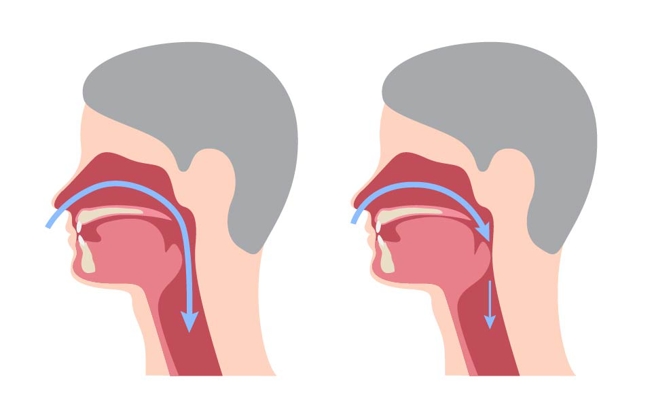10 Lifestyle Changes to Reduce Your Risk Of Cancer
- Category: Cancer, Oncology, Parrish Cancer Center
- Posted On:
- Written By: Parrish Healthcare

While certain risk factors in developing cancer cannot be controlled — such as family history, age, gender, and ethnicity — your lifestyle choices are controllable. Although changing habits may be challenging initially, once you take charge of your health, not only will you be able to reduce your cancer risk, you’ll be on your way to a better, healthier you!
Evaluate Your Diet
An unhealthy diet can cause a host of health issues, such as heart disease, diabetes and the increased risk of cancer. When making food choices, here are some things to avoid:
- Processed meats
- Foods with added sugars
- Fatty foods
- Artificial sweeteners
- Artificial flavors
- High-sodium foods
Next time you take a trip to the grocery store, try adding some of these cancer-preventing superfoods to your cart!
- Fruits and vegetables high in antioxidants (dark green vegetables and berries)
- Citrus fruits (lemons, oranges, grapefruit)
- Beans
- Nuts
- Flaxseed
- Tomatoes
- Garlic
- Fish high in omega-3 fatty acids (salmon, cod)
- Spices (cinnamon and turmeric)
Exercise and Keep Moving
If your day consists of all work and no play, you could be putting yourself at risk in developing cancer. Even making the smallest changes to your day can keep you from leading a sedentary lifestyle. If you find it hard to escape your work desk, here are some tips to try:
- Invest in a headset - if your job entails a lot of phone time, put on your headset and walk it out.
- Take a brisk walk - It’s likely that you are permitted to take breaks while at work. Try taking 10 minutes to go for a quick walk.
- Stretch - give yourself a stretch and take some deep breaths each time you complete a task before getting started on the next one.
- Chair yoga - from spinal twists to a cat-cow stretch, namaste your way to better health! This is also a good way for anyone who has limited mobility to keep moving throughout their day.
Take Time Out for You
While there is no solid evidence that stress itself causes cancer, it can weaken the immune system if ignored. By learning how to properly handle your stress, you can ensure your immune system isn’t compromised, decreasing your chance of illness. Reduce stress by incorporating the following into your daily routine:
- Exercise regularly
- Practice mindfulness
- Listen to your favorite music
- Learn breathing techniques
- Spend time with friends and family
- Spend time with your pet
- Don’t overload both your work and personal schedule
Avoid Tobacco
Whether you smoke cigarettes, cigars or use chewing tobacco, these products can significantly increase your risk of tobacco-induced cancers, such as cancer of the tongue, lung, and throat. In fact, when you quit smoking your lungs immediately begin to repair themselves. If you are currently a smoker, these techniques suggested by the Centers for Disease Control and Prevention (CDC), can help you quit:
- Set a quit date
- Create a quit plan
- Know why you are quitting
- Learn how to manage triggers and cravings
- Find ways to deal with nicotine withdrawal
- Enlist the help and support of family and friends
Avoid Risky Behaviors
Besides smoking and tobacco use, risky behaviors such as not practicing safe sex and sharing needles may increase your risk of developing the following types of cancer:
Cervical Cancer - The sexually transmitted human papillomavirus (HPV) is one of the leading risk factors in developing cervical cancer. While there are over one-hundred forms of the HPV virus, HPV16 and HPV18 are associated with cervical cancer. The HPV virus has also been linked to other genital cancers and cancers of the head and neck.
Liver Cancer - Hepatitis B and hepatitis C can be transmitted by sharing needles with someone who is infected with the virus.
Both HPV and Hepatitis B vaccinations may help prevent the onset of the above types of cancer. Consult with your doctor to determine if you are a candidate.
Limit Alcohol Consumption
While having a glass of wine at a dinner party or celebrating a special occasion every now and then is ok, excessive alcohol consumption can be detrimental to your health in more ways than one. According to the American Cancer Society, having more than one or two drinks per day can increase your risk of cancer.
Stay Out of the Sun and the Tanning Bed
There is no such thing as a healthy glow when it comes to tanning. Whether you enjoy being out on the beach or frequent the tanning salon, you could be putting yourself at risk for skin cancer. You can still enjoy the outdoors and soak up vitamin D from the sun, just be sure to protect your skin. Here's how:
- Stay away from tanning beds.
- Wear sunscreen even on cloudy days with an SPF (sun protection factor) of at least 30.
- Avoid the sun between 10am and 4pm when the rays are most intense.
- Wear long sleeve shirts and pants whenever possible.
- Be aware of medications that may make you more sensitive to the sun, such as antibiotics and anti-inflammatories.
Switch Household Products
While many types of household products can keep your home clean and smelling fresh many everyday household products are known to release volatile organic compounds (VOCs) such as ethanol and acetone. According to the American Lung Association, exposure to certain VOC pollutants has been known to cause cancer. VOCs can be found in the following products:
- Cleaners and disinfectants
- Paraffin candles
- Bleach
- Detergent
- Aerosol Sprays (hairspray, air fresheners)
Switching to natural household products is not only good for your health but the environment too!
Stick to a Regular Checkup Schedule
By sticking to your yearly well-visits, you and your primary care doctor can build a relationship that will allow you to spot common cancer warning signs early on. Let your doctor know if you're experiencing any of the following symptoms:
- Sudden unexplained weight loss.
- Skin changes.
- A persistent cough that won’t go away.
- Changes in the breast.
- Constant fatigue.
- Swollen lymph nodes.
- Blood in your urine.
If you would like more information about reducing your risk of cancer, cancer prevention and treatment options, Parrish Cancer Center | Parrish Healthcare can help. Contact the Parrish Cancer Center to set up an appointment today at 321-529-6202. Our highly skilled oncologists and cancer care staff are here to answer all of your questions and ease your concerns.



